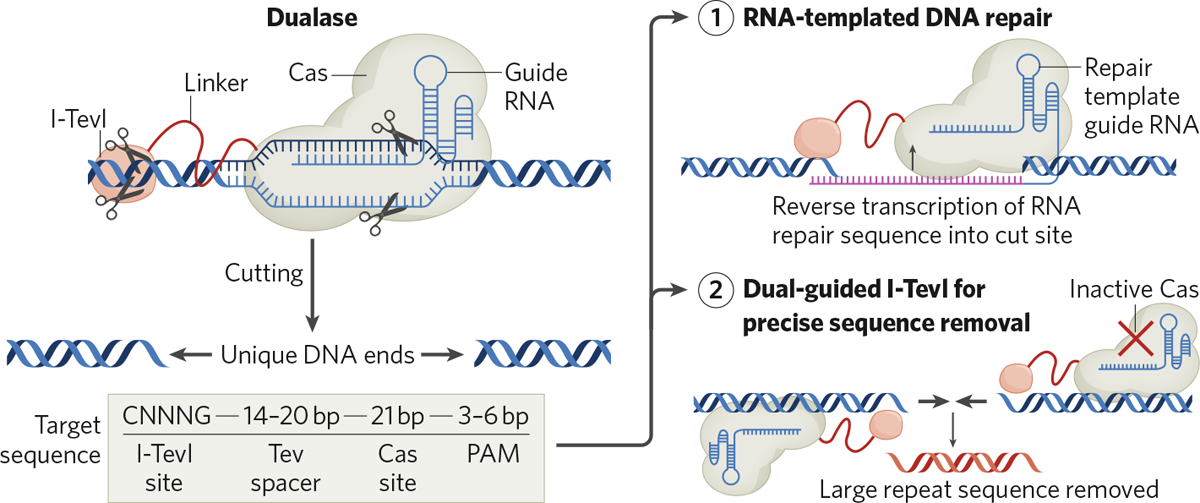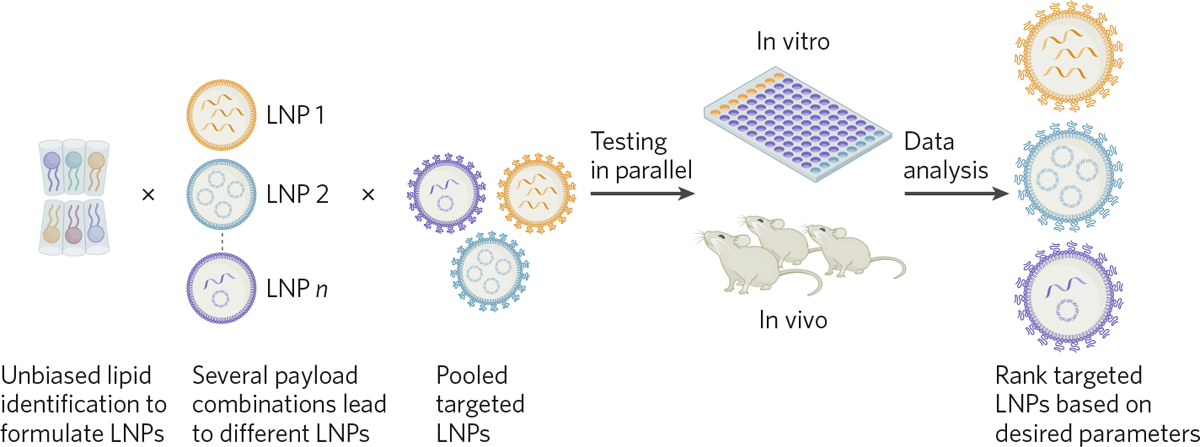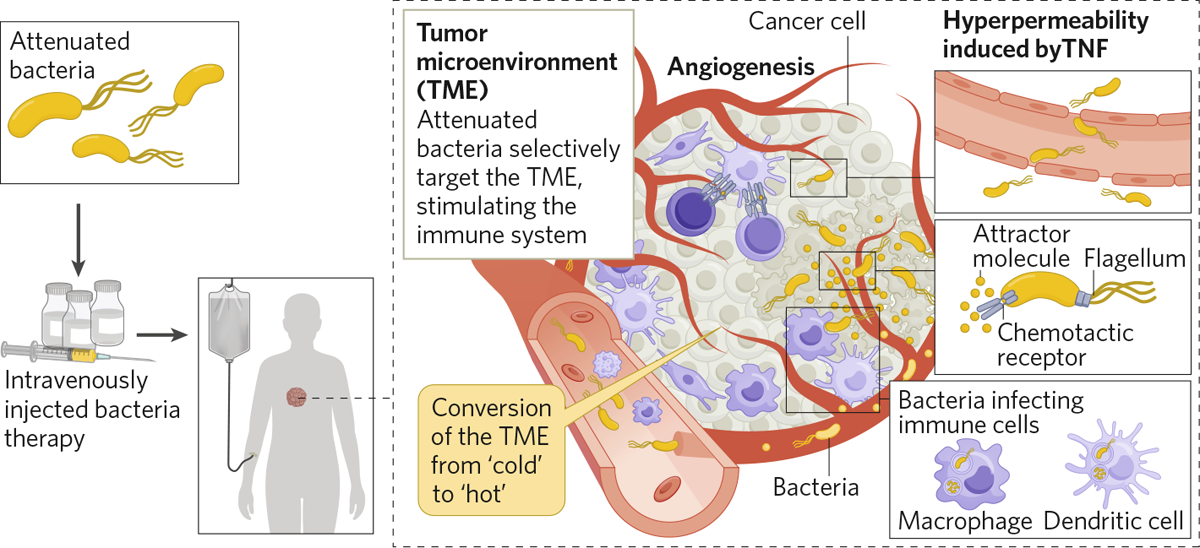Greetings, BioPharmaPulse Readers 👋
Welcome to another edition of BioPharmaPulse! In this issue, we're delving into groundbreaking innovations that are shaping the future of biopharmaceuticals. From revolutionary genome-editing technologies to novel treatments leveraging lipid nanoparticles, there's a wealth of exciting developments to explore.
What's in this issue:
- 🧬 Discover how next-gen genome-editing tech is paving the way for precision therapies
- 🌐 Learn about lipid nanoparticles and their role in equitable healthcare
- 🦠 Explore bacteria-based immunotherapies transforming cancer treatment
- 🔬 Uncover innovative nanozyme treatments targeting inflammation
Quote of the Day
"The science of today is the technology of tomorrow." – Edward Teller
Latest Developments
🧬 Building the Next Generation of Precision Genome-Editing Technologies (3-minute read)

Rundown: Genome editing holds immense promise for treating diseases at their genetic roots. Specific Biologics is surmounting existing challenges with their Dualase platform, introducing precise, efficient editing with minimal off-target effects. Their technology leverages the cell's natural DNA-repair pathways to correct mutations across various cell types.
Key Points
- 🔹 Dualase editors create unique DNA cuts for precise repairs
- 🔹 Capable of fixing insertions, deletions, and single-base changes
- 🔹 Applicability across liver, CNS disorders, and cystic fibrosis
- 🔹 Seeking partnerships to expand therapeutic applications
Why it matters: This advancement in genome-editing technology could revolutionize how we treat a myriad of genetic disorders, bringing us closer to personalized medicine and offering hope for conditions previously deemed untreatable.
🌐 Paving the Way to Equitable Healthcare with Lipid Nanoparticles (4-minute read)

Rundown: Deliver Biosciences is harnessing lipid nanoparticle technology to simplify and democratize the delivery of gene therapies. By moving away from viral vectors, they aim to make treatments more accessible, scalable, and affordable, particularly for in vivo applications.
Key Points
- 💊 Nanoparticles can deliver over 10 kilobase pairs of genetic material
- 💊 Overcomes limitations of traditional viral vectors
- 💊 Focused on diseases with high unmet medical needs
- 💊 Enables precise gene editing within the patient's body
Why it matters: This approach could significantly reduce the costs and complexities associated with gene therapies, making cutting-edge treatments accessible to a broader patient population globally.
🦠 Bacteria-Based Cancer Immunotherapeutics and Radiotheranostics (3-minute read)

Rundown: CNCure is pioneering the use of genetically engineered bacteria to combat cancer. By exploiting bacteria's natural ability to home in on tumors, they're developing therapies that stimulate the immune system and deliver anticancer agents directly to tumor sites.
Key Points
- 🧪 CNC-101 induces long-term antitumor immunity
- 🧪 Bacteria penetrate tumors and initiate immune responses
- 🧪 Radiotheranostics provide diagnostic and therapeutic capabilities
- 🧪 Development of radiotracers for detecting diseases
Why it matters: This innovative method offers a novel avenue for treating cancers, particularly solid tumors, potentially improving outcomes and reducing side effects associated with traditional therapies.
Question of the Day
🤔 What emerging technology in biopharma excites you the most?
Trending Innovations
🔬 Nanozymes: Unlocking Next-Generation Anti-Inflammatory Treatments
- Cenyx Biotech is developing nanozyme-based ROS scavengers that target inflammation at its source, offering new hope for chronic diseases driven by oxidative stress.
🧫 The KDDF Immunology Pipeline: Translating Cutting-Edge Science into Novel Therapeutics
- The Korea Drug Development Fund supports innovative immunological therapies, including approaches for atopic dermatitis, Alzheimer's disease, and ulcerative colitis.
⚛️ Dealmaking Shifts for Cell and Gene Therapies
- Insights into how emerging technologies are reshaping investments in cell and gene therapy, focusing on autoimmune diseases and in vivo engineering.
Industry Insight
🧠 Accelerating Off-the-Shelf Cell Therapies for Autoimmune Diseases
Induced pluripotent stem cell (iPSC) technology is revolutionizing cell-based therapeutics. By reprogramming adult cells into a pluripotent state, iPSCs offer a renewable source for developing off-the-shelf cell therapies.
These therapies have the potential to treat a range of inflammatory and autoimmune diseases with significant unmet medical needs. Advances in iPSC technology are making it possible to produce consistent, scalable, and safe cell products for clinical use.
Quick Hits
🩺 Newer Epilepsy Medications Used During Pregnancy Do Not Affect Neurological Development in Children (1-minute read)
- NIH-funded study finds no adverse neurodevelopmental outcomes at age 6 in children whose mothers took certain antiseizure medications during pregnancy.
🚀 Lin BioScience Receives U.S. FDA Fast Track Designation For LBS-007 (1-minute read)
- Lin BioScience advances LBS-007, targeting acute leukemia, with FDA Fast Track status to expedite its development and review.
⚠️ FDA Investigating Serious Risk of Hematologic Malignancy Following Skysona (1-minute read)
- The FDA is examining reports of life-threatening blood cancers in patients treated with Skysona (elivaldogene autotemcel).
Wrap Up
Thank you for joining us on this journey through the latest in biopharmaceutical innovation. It's an exciting time in our industry, with groundbreaking technologies on the horizon that could redefine healthcare as we know it. Your curiosity and passion drive progress, and we're thrilled to be a part of your continued exploration.
Wishing you inspiration and innovation,
Elliot Reeves | BioPharmaPulse
😊 How did you like today's email?
- 😍 Loved it
- 🙂 It was OK
- 😕 Could be better
